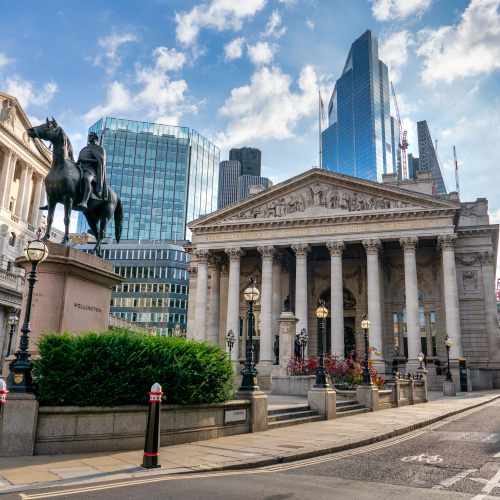
Pajor Pawel/Shutterstock
When Is the Best Time to Visit England?
The best time to visit England is during the shoulder seasons of April-May and September-October. During these months, the weather is generally mild and sunny, with fewer crowds and lower prices than during the peak summer season of June-August.
Here are some of the benefits of visiting England during the shoulder seasons:
- Mild weather: England has a temperate oceanic climate, with mild winters and cool summers. The shoulder seasons offer the best of both worlds, with mild temperatures and less rain than the winter.
- Smaller crowds: The shoulder seasons are less crowded than the peak summer season, so you’ll be able to enjoy England’s popular tourist attractions without having to deal with large crowds. This is especially important if you’re visiting popular destinations like London, Stonehenge, and the Cotswolds.
- Lower prices: Prices for flights, accommodation, and activities are generally lower during the shoulder seasons than during the peak summer season. This means you can save money on your trip without having to sacrifice quality.
Here are some specific examples of how you can enjoy the most of England during the shoulder seasons:
- April-May: The weather in April and May is typically sunny and mild, with occasional showers. This is a great time to visit for sightseeing in London and Bath, hiking in the Lake District, and attending the Chelsea Flower Show in May.
- September-October: The weather in September and October is also typically sunny and mild, with occasional showers. This is a great time to visit for visiting the English countryside, attending the Glastonbury Festival in September, and celebrating Halloween in October.
While there are many great times to visit England, if you’re looking for the best weather, fewer crowds, and lower prices, then we recommend visiting during the shoulder seasons of April-May and September-October.
 Average Temperatures by Month
Average Temperatures by Month
|
Jan |
Feb |
Mar |
Apr |
May |
Jun |
Jul |
Aug |
Sep |
Oct |
Nov |
Dec |
| Fahrenheit |
43°
|
44°
|
48°
|
53°
|
59°
|
64°
|
68°
|
68°
|
63°
|
57°
|
49°
|
45°
|
| Celsius |
6°
|
7°
|
9°
|
12°
|
15°
|
18°
|
20°
|
20°
|
17°
|
14°
|
9°
|
7°
|
Climate in England
Summer Season in England
English summers are generally mild with temperatures ranging from 15°C to 25°C (59°F to 77°F), though occasional heatwaves can bring hotter conditions. This season is characterized by longer days and increased sunshine, making it an ideal time for outdoor activities like visiting parks, beaches, and exploring the countryside. While summers can have sunny spells, they are also interspersed with rain showers, and weather can be quite variable.
Rainy Season in England
England does not have a distinct rainy season, but rainfall is fairly evenly distributed throughout the year. However, the autumn months (September to November) and winter months (December to February) tend to be wetter with more frequent rain, ranging from light drizzles to heavier downpours. The weather during these periods can be unpredictable, often changing rapidly.
Winter Season in England
Winters in England are cold and damp, with average temperatures ranging from 2°C to 7°C (36°F to 45°F). Snow is possible but not very common, especially in southern regions, and the season is typically characterized by overcast skies and chilly winds. Winter also brings shorter days and longer nights, with a festive atmosphere around Christmas and New Year, providing a cozy charm with indoor cultural experiences and winter markets.
Our Recommendations
| Destination |
Jan |
Feb |
Mar |
Apr |
May |
Jun |
Jul |
Aug |
Sep |
Oct |
Nov |
Dec |
| England |
 |
 |
 |
 |
 |
 |
 |
 |
 |
 |
 |
 |






